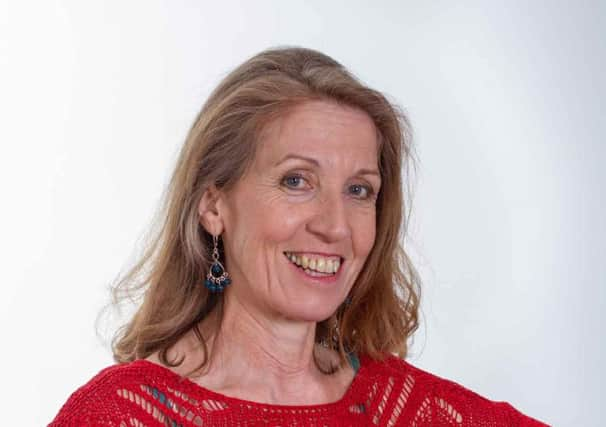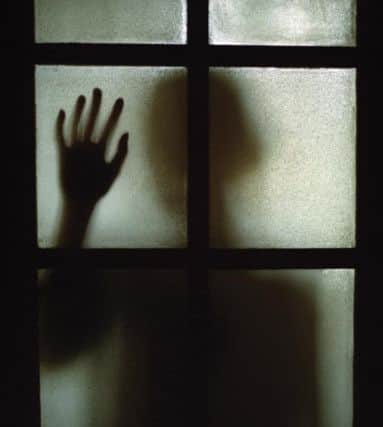My poetry and the agony of war


Her father went to prison for the sake of his principles – and years later, her son went to war for his.
Despite being dyslexic, when her son went to Afghanistan, Bryony Doran started writing poetry to help her deal with her emotions
Advertisement
Hide AdAdvertisement
Hide AdAll the agonies and fears of a serviceman’s mother went into her work. And her writing was what kept her sane during the seven months her 23-year-old son was at war.


But also, it also enabled her to process her own feelings about war – as the daughter of a conscientious objector.
“I had been brought up as a pacifist. My father, who died when I was only 10, had served time in Wormwood Scrubs during the Second World War because he refused to sign up or have anything to do with the war effort,” explains Bryony who lives in Sheffield.
“He was jailed numerous times during the war and I was brought up with his views both before his death and afterwards. So when my son went to Afghanistan, not only was I worried sick about him, I also had to come to terms with how I felt about him fighting.”
Advertisement
Hide AdAdvertisement
Hide AdDevon-born Bryony, 60, who now lives in Sheffield, explains how she came to write.


“I had been dyslexic all my life without knowing it until I got to the age of 49.
“Most of my adult life I had worked in the fashion industry but I had always felt the need to write.
“I joined a writing group when my son was three years old and went on to do an MA in creative writing at Sheffield Hallam University.
Advertisement
Hide AdAdvertisement
Hide Ad“But when I handed in my novel at the halfway stage and it was literally thrown back at me by the examiner because of poor spelling and punctuation, I decided to get myself privately tested for dyslexia.”
The test proved she was dyslexic, but she didn’t tell anyone. She completed her novel, with editing help from her partner Bill, who she had met at a writer’s workshop, and gained her MA.
Her novel, The China Bird, was published in 2009, by Bookline and Thinker Ltd.
At the most terrifying time in her life, writing got her through.
Advertisement
Hide AdAdvertisement
Hide Ad“I had decided to keep myself occupied while my son was away by finishing my second novel,” explains Bryony,
“I’ve actually found having dyslexia can have its advantages – there’s less conscious thought when I write. I can usually put pen to paper and it flows from me, whatever state of mind I’m in. But this time it didn’t – all I could think of what danger my son might be in and constantly feared the knock at my door to tell me something had happened to him.
“What came out of me was poetry. I wrote about my son and how the choice he had made had plunged me into the military machine and frozen my life with fear.
“The poems were practically spewing out of me. It was my release – the only way I could keep sane.”
Advertisement
Hide AdAdvertisement
Hide AdBryony’s son was 19 when, out of the blue, he announced he wanted to join the Army.
“It wasn’t at all what I wanted for him; because of my father’s views I had always had a jaundiced view of the Army. And I didn’t want him in danger.
“But it took him three years to be accepted by the Forces and when I saw the determination he was putting into something he had set his heart on, I supported him and was very proud of him.
“I became a military mother and put to the back of my mind the dread that he might go to Afghanistan. And then a year later he did, at the age of 23. For the seven months he was there I was numb. I yearned for contact with him, but often was afraid to have it. I didn’t want to know what he was experiencing, because then I could visualise it.”
Advertisement
Hide AdAdvertisement
Hide AdHe came home on leave from Afghanistan once; “it was a terrible fortnight for us all. He was still high on adrenalin and incredibly tense after living on high-alert for months,” she remembers.
It’s six years since those poems were created. Thankfully Bryony’s son returned safely, unlike some of his platoon. And Bryony is about the see the words that got her through dark times published in an anthology of work presenting war from the perspective of four women left at home.
Bloodaxe, a major publisher of poetry in the UK, will release Home Front on November 11, Armistice Day.
It features 40 of Bryony’s poems under the title Bulletproof, alongside those of three other women – soldier’s mother Isabel Palmer from Swindon, Texan soldier’s wife Jehanne Dubrow and New England soldier’s wife Elyse Fenton.
Advertisement
Hide AdAdvertisement
Hide Ad“The anthology gives the female perspective of how it feels to be at home paralysed with fear.
“This perspective is so very rarely told.
“TV reports usually focus on the war and the victims. War poets are nearly always men,” says Bryony.
“I hope soldiers will read this book and find greater understanding of how the women in their lives feel. And I hope it will go on to be a classic war poetry book.”
On of Bryony’s poems captures the emotions she felt while packing the twice-weekly parcels her son looked forward to at the front-line.
Advertisement
Hide AdAdvertisement
Hide AdOthers analyse the question of what his grandfather would have thought about his grandson going to war.
“I believe he would have given him his blessing,” says Bryony.
“He had his own very strong beliefs, but he also believed in the right for people to have theirs.”